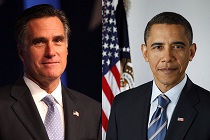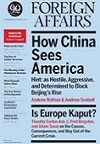A crucial choice: Romney or Obama?
Partly due to support from undecided voters, women and African Americans, incumbent U.S. President Barack Obama seems to be ahead in the polls. However, much will rest on which candidate can win over the country’s middle class. Whatever the result, it will have repercussions on markets and deregulation.








